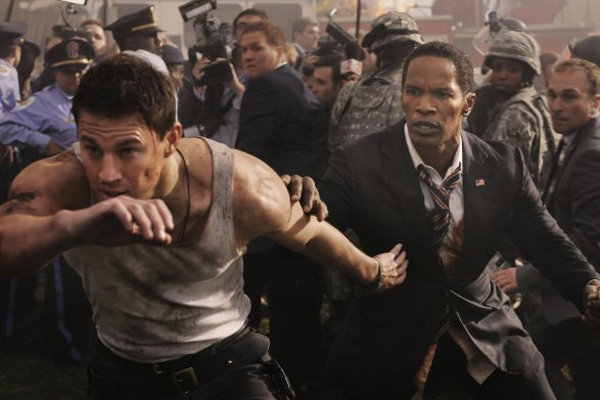Why We Love Disaster Movies

It's a normal day. The sun is shining, dogs are barking, maybe a couple is taking a stroll through the park. All in all, it's an unremarkable scene.
Then, suddenly, everything changes. The White House explodes, hostile aliens interrupt radio frequencies and the end of the world is nigh.
These are some of the major plot points used in movies by Roland Emmerich — the director of such films as "Independence Day,” "2012" and "The Day After Tomorrow." His newest film, "White House Down" is no exception.
"America gets brought down by people within," Emmerich said of the new movie to a cheering crowd during an event premiering the movie trailer. [The Top 10 Scariest Movies Ever]
Why are people attracted to these movies? They depict death and destruction, evil governments and worst nightmares come to life, yet even with such dark topics, they still rake in loads of money at the box office every year.
Sure, these movies might be entertaining and interesting to the public, but they also are appealing to people on a more visceral level, said John Hoopes, a sociologist at the University of Kansas.
"I think that these collective disasters serve a variety of different functions," Hoopes told LiveScience. "They allay individual fears of human mortality…[because] it's not going to happen at the same time. We're not all going to die at the same time."
Sign up for the Live Science daily newsletter now
Get the world’s most fascinating discoveries delivered straight to your inbox.
It is comforting to experience a disaster with people you care about, Hoopes said, and these movies play directly into that fantasy.
"These are representations of a future where a complex world becomes simplified," said Richard Mitchell, an emeritus professor at Oregon State University. "The apocalypse is always reserved for 'the other.'"
A small group of people is always saved from the global disaster happening around them, so the audience identifies with that small group, and not with the other characters affected by the tragedy, Mitchell added.
Only people with strong moral fiber and courage of conviction survive in the kinds of scenarios presented in these films. It's a "great adventure" that leads the heroes of the movie into a better, simplified existence, Mitchell said.
"When there is a looming disaster, everything else goes out the window," Hoopes said. "You don't have to take care of these other responsibilities because the world is about to end."
Disaster films also allow the audience to escape into a world where the usual responsibilities of everyday life mean nothing. All that matters is survival, and that can be an appealing concept.
"White House Down" will premiere in the United States on June 28.
Follow Miriam Kramer @mirikramer and Google+.










